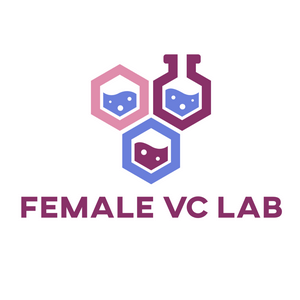In this powerful episode of Female VC Lab, host Barbara Bickham sits down with Mary King, vice president at Aligned Climate Fund, to uncover how venture capital is accelerating the global clean energy transition. If you’re curious about the future of climate tech, energy innovation, and how investors are driving decarbonization, this episode is for you!
Mary pulls back the curtain on Aligned Climate Fund’s investment thesis: investing in companies taking real action to decarbonize our infrastructure—including clean energy, resilient infrastructure, electric transport, and sustainable land use. You’ll hear insider stories about backing geothermal breakthroughs, innovative microgrid solutions, and the growing impact of point source carbon capture. Mary and Barbara also dive deep on challenges in climate tech VC, how AI could transform investment diligence, and why distributed energy and resilience are game changers for communities around the world.
Whether you’re in the climate space, an entrepreneur, or just passionate about shaping a sustainable future, you’ll walk away with fresh insights and inspiration for what’s next in climate innovation and venture capital.
Guest Information Guest Name: Mary King Bio: Mary King is vice president at Aligned Climate Fund, the venture strategy for Aligned Climate Capital. She invests in early-stage companies driving decarbonization across clean energy, resilient infrastructure, electric transport, and sustainable land use. Links:
Mary King’s LinkedIn: https://www.linkedin.com/in/maryeking/
Aligned Climate Capital: https://alignedclimatecapital.com/
Episode Outline
Aligned Climate Fund’s Investment Thesis Mary explains how Aligned invests in seed to Series B companies with proven climate solutions, focusing on clean energy, resilient infrastructure, and decarbonization.
More about Aligned Climate Capital
The Role of Emerging Technologies: Geothermal, Microgrids & Carbon Capture A look at how Aligned approaches geothermal and microgrid investments, plus insights on distributed energy and point source carbon capture for scalable climate action. Resource: What is Geothermal Energy?
Resource: Distributed Energy Resources
The Future of Climate Tech and VC: AI, Diligence, and Industry Shifts Mary predicts how AI will soon revolutionize VC deal flow and diligence, enabling faster, smarter investment decisions—and what this means specifically for the climate sector. Resource: AI in Venture Capital
Transcript For a full transcript of this episode, visit: https://femalevclab.com
About the Host: Barbara Bickham is a venture investor, technologist, and founder of Female VC Lab. She champions women in venture and spotlights game-changing leaders investing for a better future. Podcast Website: https://femalevclab.com
Rate & Review on Apple Podcasts – This is the most impactful way to support the show. Review us here!
Contact the show:
[email protected]
Follow us on social media:
Instagram: @femalevclab
X (formerly Twitter): @femalevclab
Join the conversation: Comment on X, send us a message, or share your favorite takeaway using #FemaleVCLab.
Share this episode with a friend! If you enjoyed it, tag us on social media and let us know your favorite takeaway.
